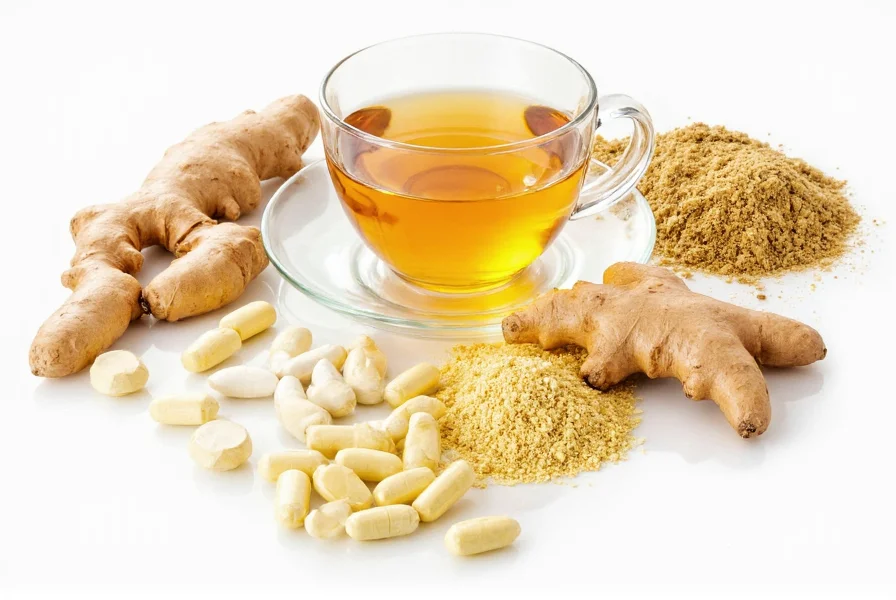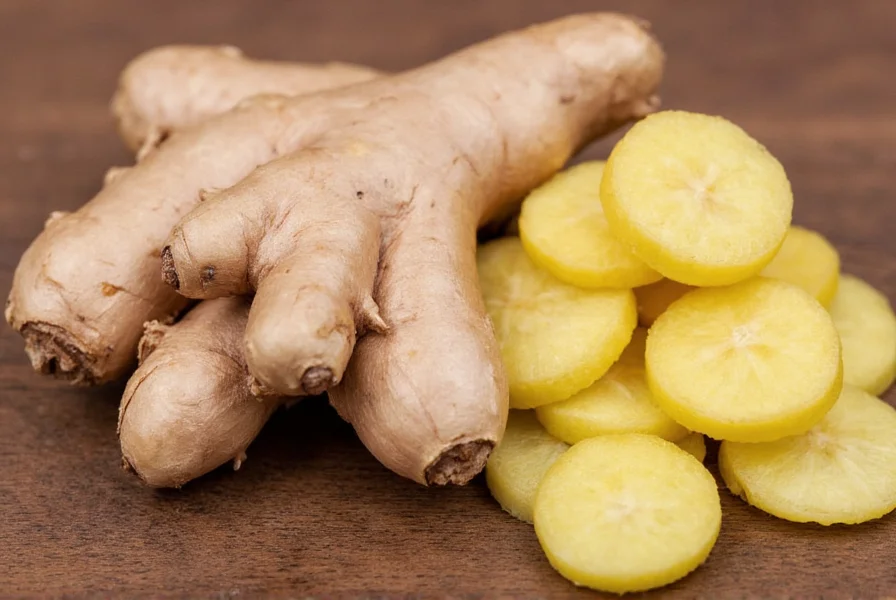For centuries, ginger (Zingiber officinale) has been revered in traditional medicine systems across Asia and the Middle East. Modern science now validates many of these ancient claims, revealing ginger's impressive biochemical profile rich in gingerols and shogaols—potent compounds responsible for its therapeutic effects. This comprehensive analysis examines what current research says about ginger's health impacts, separating evidence-based benefits from popular myths.
The Science Behind Ginger's Health Benefits
Ginger's primary bioactive compounds, gingerols, transform into shogaols when dried or heated, both demonstrating powerful anti-inflammatory and antioxidant properties. Unlike pharmaceutical anti-inflammatories that often cause gastrointestinal side effects, ginger works through multiple pathways including COX-2 enzyme inhibition and suppression of pro-inflammatory cytokines.
| Health Benefit | Scientific Evidence Level | Recommended Dosage |
|---|---|---|
| Nausea relief (pregnancy, chemotherapy) | Strong clinical evidence | 1-1.5g daily |
| Osteoarthritis pain reduction | Moderate clinical evidence | 500mg-1g twice daily |
| Digestive motility improvement | Promising preliminary evidence | 1.2g before meals |
| Blood sugar regulation | Emerging evidence | 2g daily (requires more research) |
Proven Health Benefits of Ginger
Digestive Health and Nausea Relief
Multiple randomized controlled trials confirm ginger's effectiveness against various forms of nausea. A 2022 meta-analysis in Nutrients found pregnant women consuming 1g of ginger daily experienced 36% less nausea severity compared to placebo. Cancer patients undergoing chemotherapy showed similar improvements with ginger supplementation reducing acute nausea by 23% when combined with standard antiemetics.

Inflammation and Pain Management
Ginger demonstrates comparable effectiveness to ibuprofen for osteoarthritis pain according to a 2020 study in Arthritis Research & Therapy. Participants taking 500mg ginger extract twice daily reported 48% less pain after 12 weeks. The mechanism involves inhibiting inflammatory pathways similar to NSAIDs but without the gastrointestinal risks.
Cardiovascular and Metabolic Effects
Emerging research suggests ginger may improve several cardiovascular risk markers. A 2021 clinical trial published in Complementary Therapies in Medicine showed 2g of ginger powder daily significantly reduced fasting blood sugar (12.1%), HbA1c (9.8%), and apolipoprotein B (19.3%) in diabetic patients over 12 weeks. While promising, researchers note these findings require larger confirmatory studies.
Important Considerations and Potential Risks
Despite its benefits, ginger isn't risk-free for everyone. Common side effects include heartburn and mouth irritation, particularly with raw ginger consumption. More significantly, ginger's antiplatelet effects may interact with blood thinners like warfarin. A 2019 case report in Pharmacotherapy documented increased INR levels in a patient consuming 2g ginger daily alongside warfarin.
People with gallstones should exercise caution as ginger stimulates bile production. Those with diabetes monitoring blood sugar should consult doctors before regular ginger use due to potential hypoglycemia risks when combined with medications.

Optimal Consumption Methods and Dosage
Research indicates fresh ginger contains higher concentrations of gingerols than dried forms. For nausea relief, studies show 1-1.5g daily provides maximum benefit without side effects. Chronic conditions like osteoarthritis respond better to standardized extracts delivering 5% gingerols (approximately 250mg per 500mg capsule).
Home preparation methods affect potency—grating fresh ginger into hot (not boiling) water preserves more active compounds than boiling. Fermented ginger preparations show enhanced bioavailability in preliminary studies, though human trials remain limited.
When Ginger Isn't Enough
While ginger offers impressive benefits for specific conditions, it shouldn't replace evidence-based medical treatments. For severe nausea during pregnancy, ginger works well for mild cases but may require prescription medication for hyperemesis gravidarum. Similarly, while ginger helps manage osteoarthritis pain, it doesn't modify disease progression like disease-modifying osteoarthritis drugs (DMOADs).
The most effective approach combines ginger with other evidence-based strategies—using ginger tea alongside dietary changes for digestion issues, or combining ginger supplements with physical therapy for joint pain. Always discuss herbal supplement use with your healthcare provider, especially if managing chronic health conditions.











 浙公网安备
33010002000092号
浙公网安备
33010002000092号 浙B2-20120091-4
浙B2-20120091-4